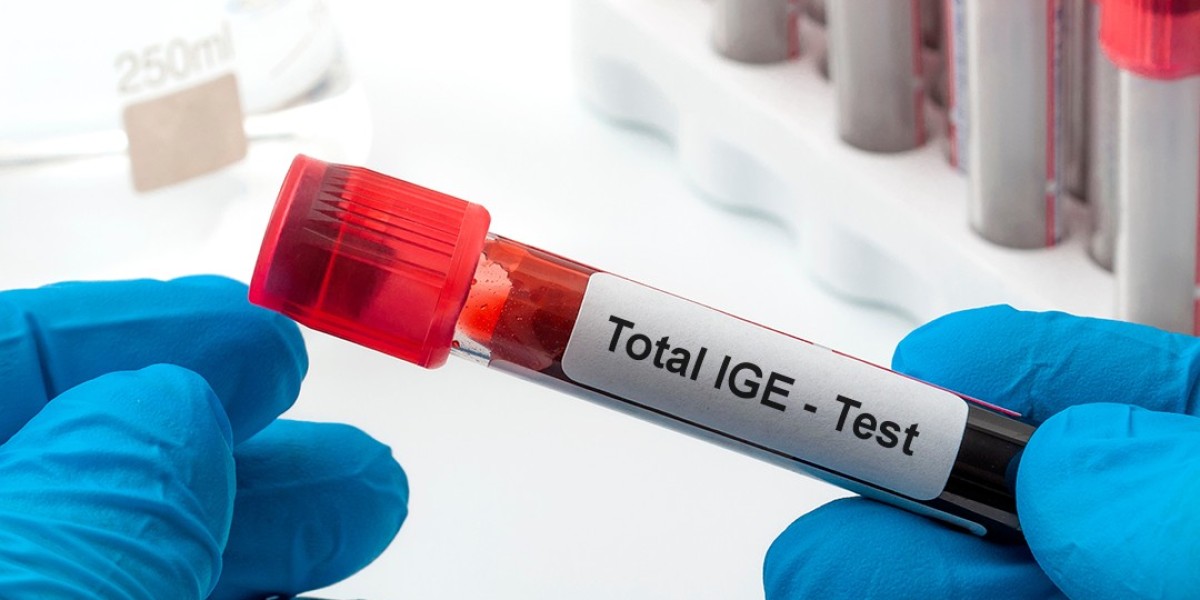In recent years, allergy-related health issues have become increasingly common due to environmental and dietary changes. The IgE Test, or Immunoglobulin E test, plays a crucial role in diagnosing allergies and understanding immune responses. If you're wondering about the IgE test price, what the test includes, and when it is needed, this article will walk you through everything.
What Is an IgE Test?
The IgE test measures the level of Immunoglobulin E antibodies in your blood. These antibodies are produced by your immune system in response to allergens such as pollen, dust, pet dander, certain foods, or insect stings. When these allergens are detected, your body releases IgE antibodies, which can trigger an allergic reaction.
There are two main types of IgE tests:
Total IgE Test: Measures overall IgE levels in the body.
Specific IgE Test: Identifies the exact allergen causing your symptoms.
Both types are useful for diagnosing conditions like allergic rhinitis, asthma, dermatitis, food allergies, and more.
Why Is the IgE Test Important?
This test is often recommended when a patient is experiencing symptoms such as:
Sneezing or coughing without a cold
Chronic skin rashes or hives
Shortness of breath or wheezing
Stomach discomfort after eating specific foods
The IgE test helps your doctor determine if an allergy is the root cause and whether further investigation or treatment is needed.
IgE Test Price in India
One of the most common questions people have is: What is the cost of an IgE test? The IgE test price in India varies depending on the city, type of test (total or specific), and the lab you choose. On average:
Total IgE Test Price: ₹500 to ₹1,500
Specific IgE Test Price: ₹800 to ₹3,000 per allergen
Some diagnostic centers also offer allergy panels that test for multiple allergens at once, which may cost more but offer greater insight.
Factors that affect the cost:
Type of test (single allergen vs. panel)
Lab reputation and technology used
Location (metro cities usually have higher rates)
Home collection services (may have an additional fee)
Where to Book an IgE Test?
You can book an IgE test at:
Local pathology labs
Multispecialty hospitals
Online diagnostic platforms (offering doorstep sample collection)
Always ensure the lab is NABL-accredited or certified by a recognized authority to guarantee accurate results.
Test Procedure
The IgE test is a simple blood test:
A sample of your blood is drawn from a vein, typically in your arm.
The sample is sent to a lab for analysis.
Results are usually available within 24–72 hours.
No special preparation is needed, but you should inform your doctor about any ongoing medications or recent infections.
Understanding the Results
Normal IgE levels suggest the absence of allergic reactions or that the immune system is functioning normally.
Elevated IgE levels indicate a possible allergy or hypersensitive immune response.
It’s important to note that an abnormal result does not always confirm an allergy; further testing and a clinical correlation by a doctor are essential.
Final Thoughts
The IgE test is a valuable tool for diagnosing allergies and understanding immune system behavior. While the IgE test price may vary, its benefits in identifying root causes of symptoms and guiding treatment are significant. Always consult with your healthcare provider to decide whether you need a total or specific IgE test, and choose a reliable lab for accurate results.
Understanding your allergies early can lead to better management, improved lifestyle, and peace of mind.







